At A Glance
- Working with a supervisor is most effective way to operate at the top of your game.
- Coaching supervision is the gold standard of maintaining professional competence and inviting voluntary quality control to your coaching practice.
- While it is not obligatory worldwide, the EMCC advocates that coaches and mentors should get supervised for at least one hour per 35 hours of practice, guaranteeing at least four sessions every year. The AC recommends a ratio of 1:15.
- Read ahead to know what you might expect from a coach supervisor and how to make the most of coaching supervision.
Table of Contents
Introduction to Coaching Supervision
“Am I doing it right?”
“Can I bring the desired results to my clients?”
“Am I even cut out for this job?”
And countless other questions.
Coaches often encounter such dilemmas– especially during the initial days of their careers.
Despite getting full-fledged training from a reputable coaching organisation, this self-questioning can return when you start dealing with real clients.
But guess what? This self-interrogation can be your opportunity to become a master coach.
And what’s the second step, you ask?
Getting supervised by an expert coach supervisor who understands and has unconditional positive regard for you, your clients and your work. Someone who has been in your shoes and knows how to deal with the complexities of this career and discuss it openly.
This article will present you with a 101-guide to coaching supervision. You’ll learn everything about coaching supervision, how it works, and how it can help you shape your career as a coach– now and in the long run.
Let’s start with defining ‘Coaching Supervision’ first.
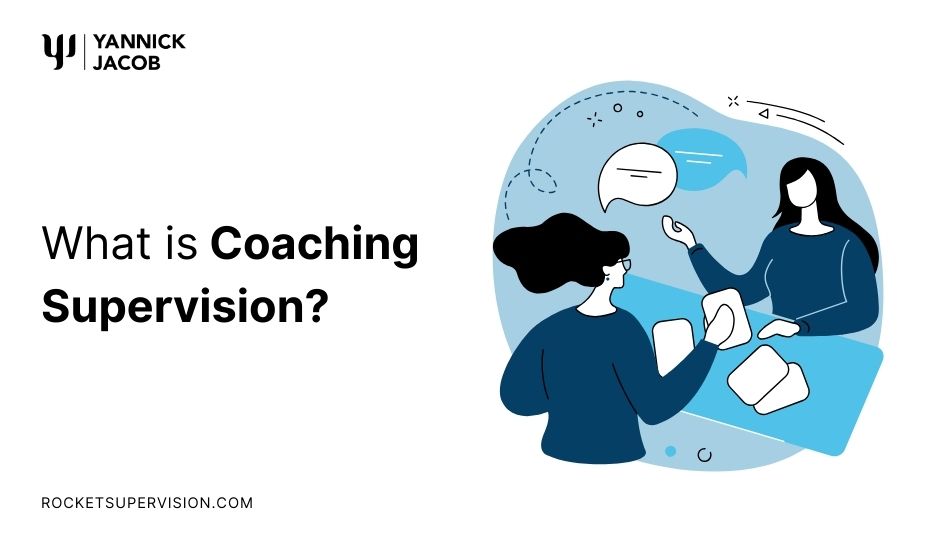
What is Coaching Supervision?
Coaching supervision is a process through which a practising coach explores the foundations of their core identities, their coaching style, and the various ethical and personal challenges of being a coach– with the help of a coach supervisor.
It’s a space where coaches can reflect on their coaching relationship with clients.
By working with a coach supervisor, a coach can discuss and reflect on their working style, receive feedback, challenge their limiting beliefs, and learn from their experiences effectively.
Why Coaching Supervision is Important?
Regular supervision is the most effective way to elevate your coaching practice. Apart from emotional support, coaching supervision helps you navigate ethical dilemmas and maintain highest professional standards as a coach. The space that an experienced coach supervisor holds for you, (including, where appropriate, their guidance and expertise) can catalyse your professional development. It enables you to achieve your career milestones and level up both your eay of being as well as your interventions with clients.
Below are some of the most notable benefits of coaching supervision:
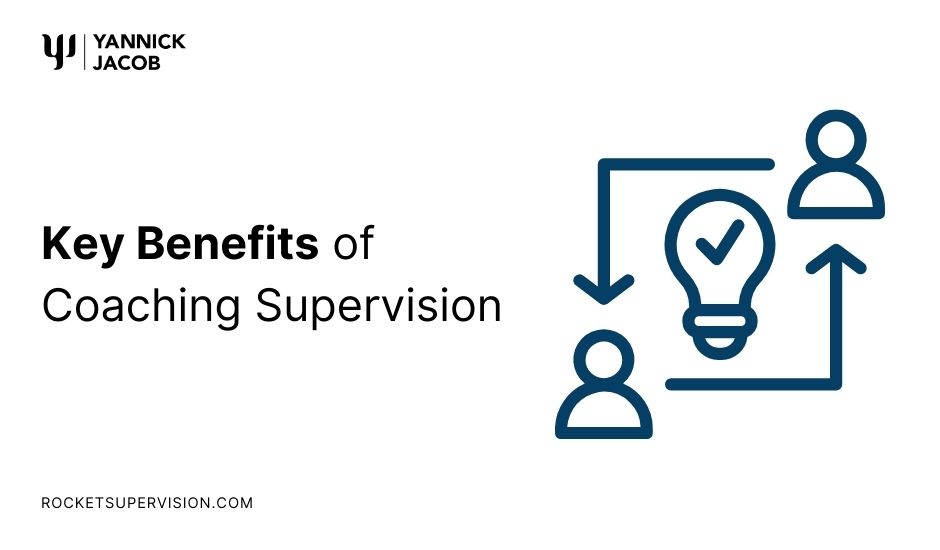
Key Benefits of Coaching Supervision
Coaching Supervision makes you feel heard and seen.
A listener needs a listener too.
Coaching can get overwhelming. Listening to your client’s issues, filtering out the information & analysing while keeping your personal biases aside is all easier said than done. Holding a space of deep presence and genuine connection can be draining.
Coaching supervision provides a safe space to share vulnerabilities and doubts without filters and replenishes the well-being of the coach.
This helps you reduce stress, become more resilient, happier, and increase productivity as a coach.
Supervision for coaches is a reflective practice leading to refined skills
Supervision helps you reflect on and analyse your coaching practice. An effective coach supervisor provides coaches with dedicated space and deep presence to open up and reflect on their coaching sessions, techniques, and approaches.
Such valuable insights and constructive feedback can help new or practising coaches pause and refine their skills for better outcomes.
Coaching Supervision steepens your learning curve exponentially.
Working with an expert coach supervisor can help eliminate your blind spots and expand your worldview as a coach.
You can find new ways to look at a situation, add new techniques to your coaching toolkit, and stay aware of the latest trends and developments in the coaching industry.
Coaching Supervision makes you ethically sound & self-aware.
Dealing with clients’ sensitive and confidential information is integral to the coaching career. Effective supervisors give the coaches the space and attention to discuss their emotional and ethical dilemmas so that the coach complies with the ethical guidelines and maintains professional integrity and decorum.
Knowing that their coach’s supervisor engages in highest professional standards provides a n invaluable sense of safety to your clients as well.
A Coach Supervisor can challenge you to go deep so you can stay afloat.
Coaching supervision is more than just a feel-good space or a place to fix problems. A coach supervisor’s role also entails challenging you to deepen your thought process about how you coach or what comes up for you while coaching clients. Only by introducing this element of depth and challenge can you truly grow in confidence as a coach.
Coaching supervision offers the gentle nudge you need to stay accountable for your actions and decisions as a coach.
Coaching supervision adds competence to the way you coach.
The easiest way to feel competent as a coach is to keep continuous learning and feedback at the front and centre of your upskilling efforts. Coaching Supervision is the gold standard for maintaining that edge and relevance as a coach. It helps assess the capacity of the coach and bring due diligence to one’s coaching practice.
It inspires you to look at your own patterns vis a vis client work, thus enhancing the clients’ coaching experience and desirable outcomes. That sense of continuous improvement and awareness slowly builds your competence as a coach, leading to clarity and confidence in the value you bring.
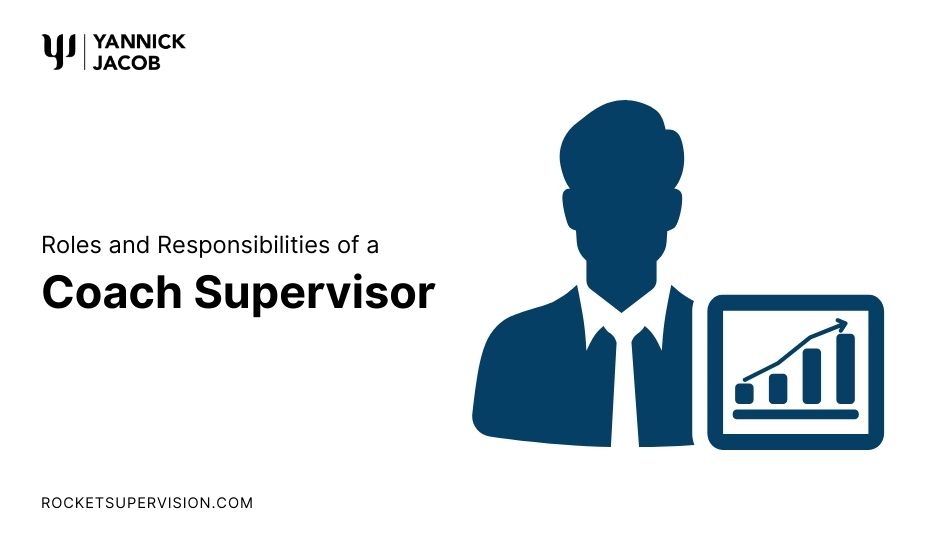
Roles and Responsibilities of a Coach Supervisor
Contracting well – Through effective communication and direct questions
The ICF (International Coach Federation) defines contracting as “a conversation that can make assumptions explicit” and serves three critical functions.
- define roles while providing a common language between a coach and their supervisor.
- assess a coach supervisor’s track record and suitability to work with you.
- discuss the areas to uncover and examine as you start coaching supervision.
Offering deep presence and curiosity to a coach.
A coach supervisor’s work starts by being deeply present no matter what the client brings to the coaching supervision session. Within a space that’s characterised by empathy, congruence and unconditional positive regard, a coach supervisor helps you explore what is holding you back or the dilemmas you are facing as a coach.
This curiosity also extends to your coaching sessions. Many coaches and supervisors work together by sharing and watching recordings of the coach’s client sessions (where permission has been granted by the client), observing and dissecting the session to mine highly effective learning and insights.
Always being honest yet kind with feedback.
Coaching supervision is a professional best practice that ensures you get continuous feedback and insight on your work as a coach. Such a system for genuine feedback is essential to voluntary quality control.
Effective coach supervisors know how to stay neutral yet never shy away from challenging the coach’s assumptions and giving them honest but kind criticism.
Although not mandated by a professional body, coaching supervision gives a feeling of safety to both the coach and the clients. It is the best form of self-care you can get as a coach.
Providing essential resources for professional growth.
A coach supervisor may share resources like articles, books, or tools based on their supervisee’s context or their observations and analysis of the coach’s day-to-day performance and requirements.
These resources can help you upskill, form better networks, and ground your practice on a solid foundation.
Getting the coach out of their locked bubble
One-on-one coaching can trap a coach and their client in a bubble. When that happens, the client and coach stop paying sufficient attention to what’s beneath the surface.
Uncomfortable realisations, tricky boundaries, challenging questions, or unacknowledged transference and projection can all be issues that remain unaddressed without appropriate and regular supervision.
Coaching supervisors help coaches get out of this bubble, so they practice coaching with wider exposure by (metaphorically) introducing the stakeholders to the coaching.
The Process of Coaching Supervision
Every supervisor’s process differs. Supervisors use different models and theoretical underpinnings to guide their practice. The following offers some suggestions that may help a coach ask better questions when they meet a prospective supervisor.
Preparation
In this step, the coach and the coach supervisor try to gather information and set goals to make the most out of the supervision journey. The coach can prepare a list of doubts, exceptional cases, or any other issues they face during coaching. Some supervisors may review the coach’s practice, work context, and coaching approach.
During a first meeting, the coach and supervisor discuss whether the coach wants 1:1 or group supervision (discussed later in this article), and they may set objectives and desired outcome.
Coaching Observation Techniques
While usually, in supervisor and supervisee reflect on coaching sessions based ont he coach’s memory and percpetion of their coachign work, a coach and supervisor may consider coaching observation techniques they want to use in the supervision sessions. Such techniques can include a review of recordings made of coaching sessions (with the client’s permission).
The supervisor may be sent such recording prior to the sueprvision session (with or without notes and pointers as to which sections to pay attention to), or the supervisee brings the recording to the supervision space and both listen to (parts of) the session together.
Feedback and Evaluations
Supervision is a space for reflection and aims to expand the coach’s awareness around their practice, fostering their ability and confidence to make difficult decisions and navigate tricky coaching cases.
Supervisors who utilize a more authoritative and informative style may provide feedback to the coach based on their assessment and evaluation of the coaching scenario. Such a supervisor may suggest or reinforce more effective techniques to help the coach understand how to deal with specific scenarios.
A coach supervisor may also offer alternative perspectives. This results in a reflective practice and aids the coach’s journey to excellence.
Key Principles of Coaching Supervision
The fundamental principles of coaching supervision are mutual respect, empathy, and integrity. It is also expected from supervisors that their observations will be unbiased and non-judgemental. Coach Supervisors are supposed to encourage the coach to come up with their conclusions guided by self-reflection and self-awareness. Thus, a coach supervisor can play a pivotal role in developing a coach’s internal supervisor.
Additionally, coach supervisors adhere to ethical conduct and clear contracting, thus keeping the coach’s practice perfectly aligned with professional standards.
Confidentiality in Coaching Supervision
The last but most essential part of coaching supervision is confidentiality. The coach supervisor must create a safe setting where the coach can share sensitive, personal, or client-specific issues openly without fearing information leaks.
Types of Coaching Supervision & Their Benefits
Coaching supervision can be of three types:
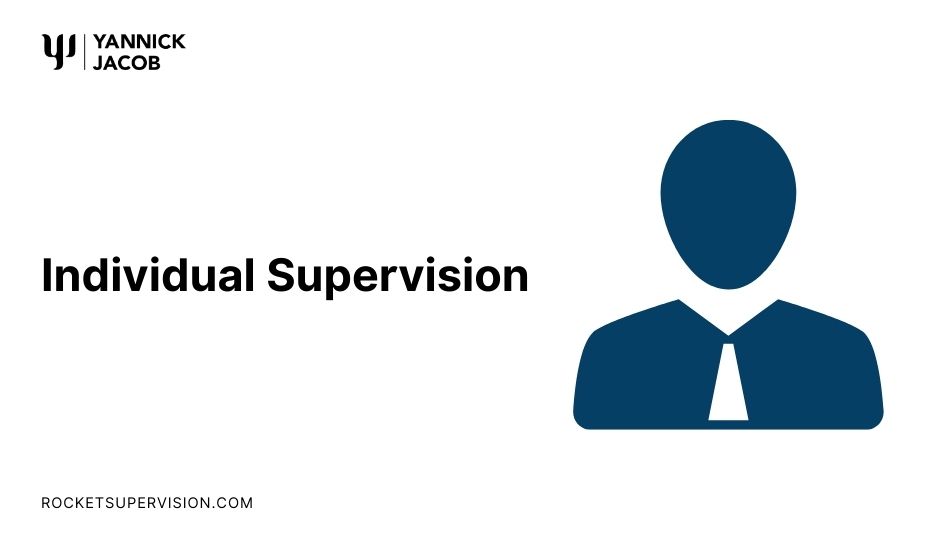
Individual Supervision
Individual or 1:1 supervision is when a qualified coach supervisor works with an individual coach separately. The coach supervisor provides support, guidance, and feedback based on their coaching sessions and unique challenges.
Individual supervision allows the coach supervisor to provide coaches with undiluted focus, high quality observations and custom-tailored guidance. The coach gets a chance to partner with senior practitioners in their industry.
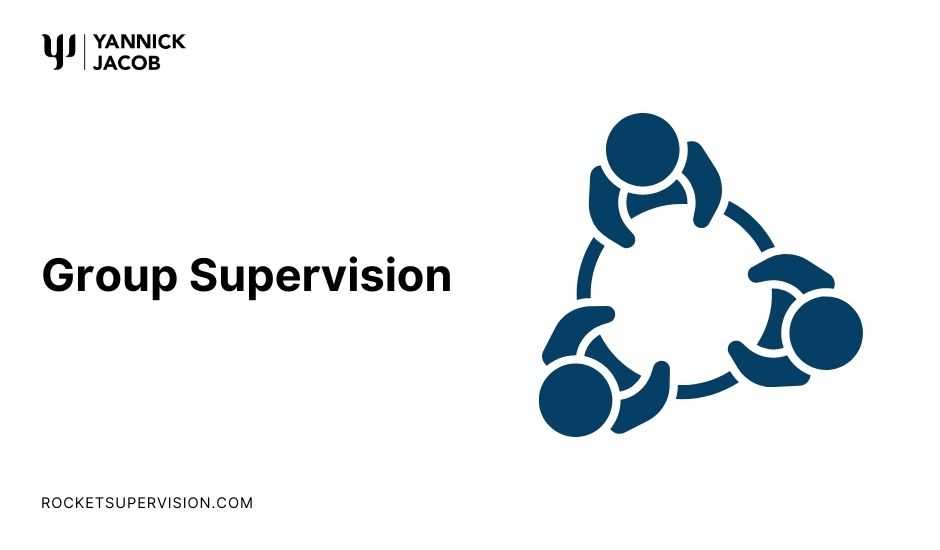
Group Supervision
Group supervision involves a group of coaches working with the same supervisor. The number of coaches and level of diversity in a group may vary.
At Rocket Supervision, we restrict this number to four. Coaches in the group decide on what they want to focus on in a particular supervision session and share their individual experiences, successes, and challenges with their fellow coaches and coach supervisor. The group then discusses those topics, providing feedback to the presenting coach, and encouraging peer learning and support.
Group supervision fosters a powerful collaborative environment and community spirit, where coaches can learn from each other and look at a particular coaching issue from different viewpoints.
Contracting is a core aspect of group supervision. Given that a group has coaches from different backgrounds and approaches, a coach supervisor must be adept at curating the right group of coaches.
At Rocket Supervision, we take great care in assigning coaches to these groups, by conducting an in-depth discovery call with the coach supervisor. Interested in finding out more. Apply to join a group here.
Peer Supervision
Peer supervision is a collaborative learning practice where coaches form small groups or even pairs and support each other. Unlike the other two types, peer supervision typically involves coaches with a similar amount of coaching expertise— without having a trained supervisor around.
Peer supervision can invite more open discussions as coaches may be more comfortable sharing their experiences with colleagues, and also since peer spaces tend to be low cost or free of charge.
Our free peer support group ‘The Coaching Cabinet’ provides a peer supervision space to coaches while mixing various levels of experience for better results.
Coaching Supervision Vs. Mentor-Coaching
Coaching, mentoring, and counselling are often misinterpreted as synonymous. But in reality, they have striking differences. Let’s differentiate them with three key factors- goal, concern, and key stakeholders.
Coaching Supervision
Goal: Bring depth and reflection to a coach’s practice. Formative, normative and restorative.
Key stakeholders: Coach Supervisor and coach(es). Coach Supervisors are professional coach practitioners, more experienced than the coach, who get involved intimately to refine the coach’s practice, and bring reflection and discernment in how far they can go.
Concern: Professional development, maintaining professional standards, and navigating ethics.
Mentor-Coaching
Goal: Comply with the competency frameworks of professional bodies (usually ICF), typically to support a coach’s application for individual accreditation and credentialling.
Key stakeholders: A mentor-coach and a mentee (or mentees). Where the mentor-coach has more experience than the mentees in their respective fields and is embedded within the professional body.
Concern: Professional development within a specific competency framework. Mentor-Coaching typically invovles reviewing a coaching session recording through the lens of coaching competencies, with specific guidance and evaluation from the mentor-coach.
Common Impediments to the Coaching Supervision Process
Not trusting the pace of the process.
Haste can result in waste.
Quality coaching supervision demands patience and time. Sometimes, coaches might find the process too slow or unyielding and start questioning it altogether. This can hinder the overall progress and leave a crack in the coaching supervision relationship– undermining the progress even more.
Lack of commitment
After the initial excitement fizzles out, many coaches struggle to keep up with their coaching-supervision commitment. To fix this, you can schedule all the sessions beforehand or prepare the rules in your contract that will encourage the coaches to stay consistent throughout the journey.
Anxiety and Unsystematic Thinking
Coaches, especially new coaches, stay in fear of not following the rules or forgetting the theoretical knowledge they’ve learned so far. This can lead the coach into anxiety and unstructured thinking.
They might struggle with keeping the real issues in front of their coaching supervisor in their professional practice.
Getting Defensive Over Feedback
Sometimes, coaches get offended or negatively take the feedback. They can start defending themselves instead of using it as a tool for their professional development.
Supervisors should keep the feedback gentle and help coaches understand that honest feedback is a part of the supervision process.
Coaches must also keep their egos aside, keep analysing their behaviour, and learn from constructive criticisms as much as possible.
Expecting the Coach Supervisor to “Fix” Problems
Like coaches encourage their clients to find their conclusions, a coaching supervisor’s job is to guide a coach to find their internal supervisor.
Hence, it’s futile for coaches to ask their coaching supervisor to fix issues on their behalf, especially business issues.
Hypothetically, even if the supervisor solves the problem for you this time, you would never know how to deal with such a situation the next time.
In the process of coming to their own conclusions, coaches find answers to several other doubts and upgrade their expertise from within. The more answers they discover, the more confident they become in their coaching practices.
What the Future Holds for Coaching Supervision
The coaching industry is expanding with every passing year. Only the executive coaching market is valued at $9.3 billion globally.
More coaching niches will result in more demand for coaching supervision.
The industry needs it more than ever.
People across the world are prioritising their mental well-being and balance. It’s becoming normal to seek professional help in managing one’s emotions, goals, relationships, etc. After all, this stuff is hard, and not many of us were given a compass to navigate. Coaching is thus becoming a favourable option for so many people. Having a coach who can hold the torch while you walk your path is a privilege that many people want to experience.
That calls for awareness and accountability, mainly because of the largely unregulated nature of the coaching industry. But more than that, coaches need a similar leaning shoulder a therapist has while ploughing through their initial years.
Only 44% of coaches in the UK used to receive coaching supervision back in 2006. This number increased to a whopping 92% in 2014! (Ref: A research report by Eve Turner and Peter Hawkins.)
Hence, the call for coaching supervision is becoming prominent in many circles.
Leveraging tech advancements
Coaching supervision has become more accessible with technology. Video conferencing and other online collaborative tools have made it easier for supervisors to work with coaches– individually or in groups.
Although the term and concept itself are less popular in the US and other countries, lately, due to tech advancements, coaching supervision has become accessible to coaches from across the globe.
AI and Metaverse are expected to cause more changes to the coaching supervision industry in the near future.
Niche & culture-sensitive coaching supervision
More niche and culture-specific coaching will also create demands for respective coaching supervision. It can be challenging for many coaches to relate to certain clients because of cultural differences or unconscious biases.
DEI-informed coaching supervision thus emerges as a source of support and guidance in such situations. Therefore, in the future, aspiring supervisors may get opportunities to become more culture-disciplined in their respective industries (health or life, etc).
Are you constantly second-guessing yourself?
Most coaches start with a desire to help people and make an impact. But they get stuck in an overwhelming “Am I doing it correct?” loop.
- Feeling exhausted
- Confused & helpless
- Underpaid or failing to scale
- Underconfident & emotionally vulnerable
- Blurred personal-professional boundaries
…are some of the umpteen doubts you might face in your day-to-day life as a coach.
Please know that you’re not alone. Now may be the right time to try working with a coach supervisor so you can reflect on your practice and finetune your process.
Need to talk? We are here. Just click to schedule a no-fee call with our coach supervisor, Yannick Jacob.
Conclusion
Coaching can be a challenging profession to be in. Especially if you’re new to the industry and might find it hard to sustain and scale your coaching business. With the support from an experienced and qualified supervisor, you can build a practice grounded in integrity and competence.
I hope you enjoyed the article and found it insightful.
If you’d like to connect and explore working with a supervisor, let’s connect.
